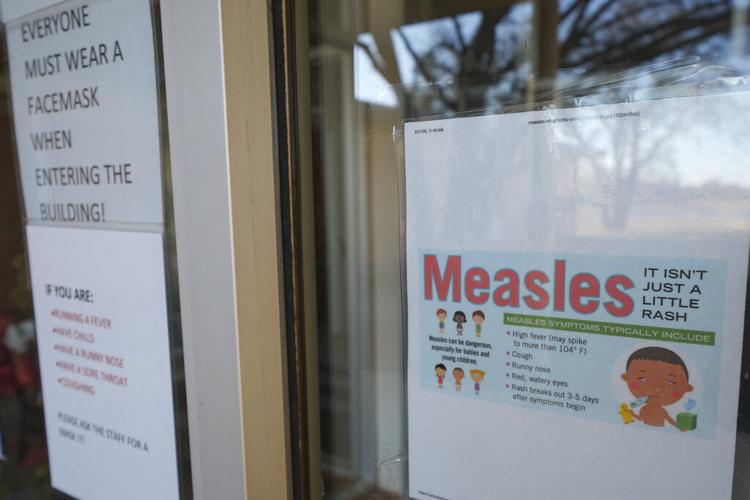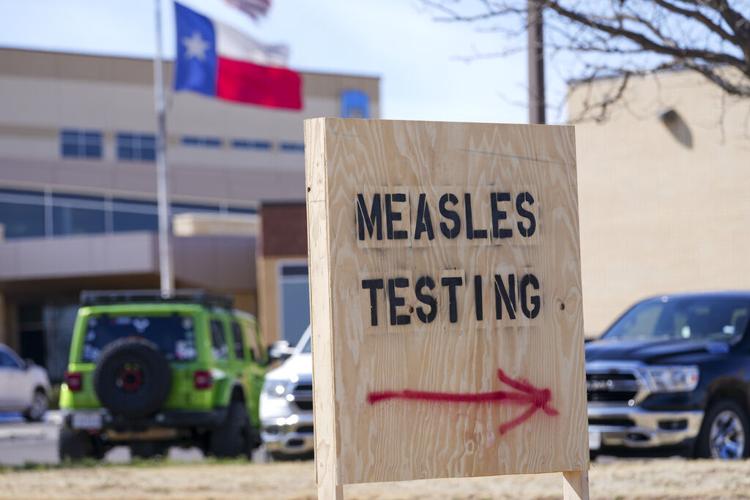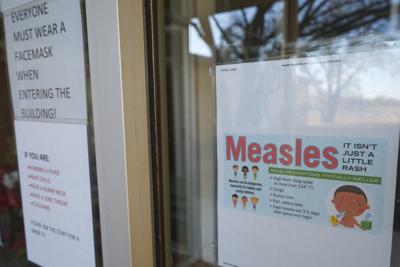Before he crossed the hospital room, Dr. Mark Kline already knew what he was looking at. A child admitted to a Dallas hospital in the late 1980s had been sick for days with a fever, rash and no clear diagnosis.
“That’s measles,” said Kline, an infectious disease expert who recognized the signs from treating hundreds of cases in Uganda earlier in his career. None of the pediatricians or nurses had considered it. They’d never treated a case.
Decades later, the same unfamiliarity with a disease thought to be eliminated could ripple through emergency rooms in Louisiana as hospitals prepare for the possibility of local cases amid a nationwide outbreak.
With two cases identified in Louisiana and vaccination rates slipping below the threshold for community protection, hospitals are preparing by educating their staff on symptoms and reviewing protocols for isolation and contact tracing. Many health care providers in Louisiana have never seen a case outside of a textbook.
“Most of them are too young to have actually seen a case with their own eyes,” said Kline, now physician in chief at Manning Family Children’s in New Orleans.
Louisiana's first case was announced by the state health department on Saturday in an unvaccinated adult who had recently traveled internationally and was treated for measles at a New Orleans-area hospital. That person is not hospitalized and is now in isolation. As officials located others the patient had been in contact with, they discovered a second case in a New Orleans-area adult who is no longer infectious, health officials said Monday.

A sign is seen outside of Seminole Hospital District offering measles testing Friday, Feb. 21, 2025, in Seminole, Texas. (AP Photo/Julio Cortez)
First cases confirmed
Measles is a highly contagious airborne virus that spreads through coughing, sneezing, or even breathing near others. Symptoms usually begin 7 to 14 days after exposure and include high fever, cough, runny nose, red eyes, and a rash that spreads from the face downward. Complications can be severe, including pneumonia, brain swelling, and death.
Louisiana had three travel-associated measles cases in 2024. Prior to that, the last recorded case was in 2018. That patient had traveled to Louisiana from Europe to attend Wrestlemania and sought care at an urgent care and ER before being diagnosed at Tulane Hospital, highlighting the potential of a missed diagnosis.
“For people who aren't familiar with it, or don't have it on their mind, they can make a mistake,” said Dr. John Schieffelin, professor of pediatrics at Tulane University and pediatric infectious disease chief at Manning Family Children’s. At that hospital, triage nurses and urgent care staff have been placed on high alert for symptoms.
The Louisiana Department of Health recently ended statewide mass vaccination efforts and directed staff to refrain from recommending specific vaccines and to instead tell residents to consult their physicians, part of a broader policy change under Surgeon General Dr. Ralph Abraham.
However, Abraham said Monday that the state has been promoting the measles vaccination on the LDH website.
"We recommend it for our children, and it is a good vaccine," he said.
Preparing for local spread
While the latest case was travel-related and no pediatric cases have been reported in Louisiana this year, local spread remains a risk.
“We’d be naive to think that we won’t be seeing cases in children here in Louisiana,” Kline said, pointing to the state's proximity to Texas, where nearly 600 measles cases have been reported this year. Two unvaccinated school-aged children have died there, and at least 62 people have been hospitalized. The outbreak has spread to nearby states of New Mexico, Kansas and Oklahoma.
Dr. Kara Ward, a critical care and emergency medicine physician in New Orleans, said that even a single case can be operationally disruptive. Hospitals must notify public health authorities, isolate the patient, assess the vaccination status of anyone who may have been exposed in waiting areas, and implement special cleaning procedures due to the virus’s ability to linger in the air for up to two hours.
“It puts more strain on the limited resources,” Ward said.
Ochsner Health, the state’s biggest health system, is continuing to educate staff on measles symptoms and likelihood based on travel history and vaccination status as the Texas outbreak has grown, said Dr. Sandra Kemmerly, system medical director of patient safety. If a patient is suspected to have measles, they are given a mask and isolated. The hospital contacts the state health department, and those authorities decide whether a test is necessary. The test is processed by a state lab.
Vaccine coverage declines
The measles vaccine — part of the MMR (measles, mumps, rubella) shot — is about 97% effective after two doses. Widespread vaccination eliminated measles in the U.S. in 2000, but resurgences have occurred in communities with declining vaccine uptake.
In Louisiana, MMR vaccination rates among kindergartners dropped from about 96% in 2020 to 92% in the 2023–2024 school year, according to the CDC. Several parishes, including Livingston, East Baton Rouge, St. Tammany, Acadia, Lafayette, Terrbonne, Union, Ouachita and West Carroll have rates below 90%.
“We have sort of dipped below that threshold of herd immunity in Louisiana,” said Schieffelin. “In some areas, we could start seeing some ongoing transmission if it gets introduced.”
While the first MMR vaccine is typically given at 12 to 15 months and again around kindergarten, some pediatricians are getting requests to give it earlier.
The Monday after Louisiana confirmed a measles case, Hales Pediatrics in Uptown New Orleans received a wave of calls from concerned parents, said Dr. Nora Oates.
Children as young as six months can receive an early dose of the measles vaccine, though they will still need two standard doses later, as infants’ immune systems often don’t mount a full response at that age.
While the early dose is typically reserved for infants traveling to or living in areas with active outbreaks, Oates said she would “have no reservations about giving it” if a parent was concerned.
Adults who are unvaccinated or unsure of their vaccination history can also get immunized.
No specific treatment
There is no specific treatment for measles, said Kemmerly, just supportive care. Severe cases might be managed with steroids or vitamin D. For immunocompromised people, immune globulin is available if administered shortly after exposure. The measles vaccine can also prevent infection or lessen illness severity if given within 72 hours of exposure.
“Our best treatment for measles is prevention,” Oates said.
About one in five unvaccinated measles patients is hospitalized. One in 20 children develops pneumonia, the most common cause of measles-related death in young children. One to three of every 1,000 children with measles will die from complications, according to the CDC.
Despite misinformation about alternative treatments circulating, there are not a lot of treatment options.
“Once you come down with measles, you're just along for the ride,” Kline said.



